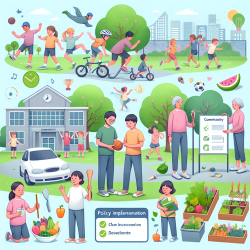Introduction
In the realm of dementia care, family caregivers play a pivotal role in providing support and ensuring the well-being of their loved ones. The increasing prevalence of dementia, as highlighted by Alzheimer's Disease International (2019), underscores the urgent need for innovative solutions to assist caregivers in their demanding roles. A recent study titled "Beyond instrumental support: Mobile application use by family caregivers of persons living with dementia" explores the transformative potential of mobile applications (apps) in enhancing caregiving experiences.
Key Findings from the Study
The study utilized a qualitative descriptive approach to delve into the experiences of family caregivers using apps in their caregiving roles. The findings revealed a central theme: Connecting to support through apps in my, your, and our lives. This theme illustrates how apps facilitate connections not only between caregivers and care recipients but also within the broader family network.
Core Themes
- Adapting apps to meet individual needs of the dyad: Caregivers often repurpose existing apps to cater to specific caregiving needs, enhancing both their own and the care recipient's experiences.
- Minimizing the impact of the condition on the person and the family: Apps help maintain family routines and promote the personhood of individuals with dementia, offering a sense of continuity amidst change.
- Determining the effectiveness of apps: The study emphasizes the importance of apps being user-friendly, multifunctional, and integrated across devices to maximize their utility for caregivers.
Implications for Practitioners
For practitioners in speech-language pathology and related fields, the study's findings offer valuable insights into how technology can be leveraged to support caregivers and enhance the quality of care. Here are some actionable steps:
- Stay Informed: Keep abreast of the latest app developments and their functionalities to recommend appropriate tools to caregivers.
- Promote Person-Centered Care: Encourage the use of apps that support the individuality and preferences of care recipients, fostering a sense of identity and inclusion.
- Collaborate with Developers: Engage in partnerships with app developers to ensure that caregiver needs are addressed in the design and functionality of new applications.
Encouraging Further Research
The study underscores the need for ongoing research to refine and expand the use of mobile apps in dementia care. Practitioners are encouraged to contribute to this growing body of knowledge by conducting studies that explore the long-term impacts of app use on caregiver well-being and care recipient outcomes.
Conclusion
The integration of mobile apps into dementia care represents a promising avenue for enhancing the caregiving experience. By embracing technology, practitioners can support caregivers in navigating the complexities of their roles, ultimately leading to improved outcomes for both caregivers and care recipients.
To read the original research paper, please follow this link: Beyond instrumental support: Mobile application use by family caregivers of persons living with dementia.










